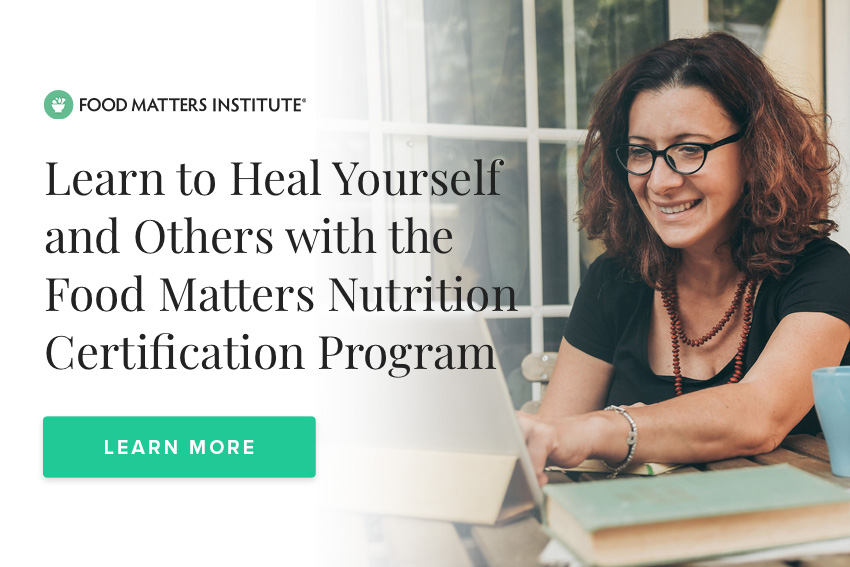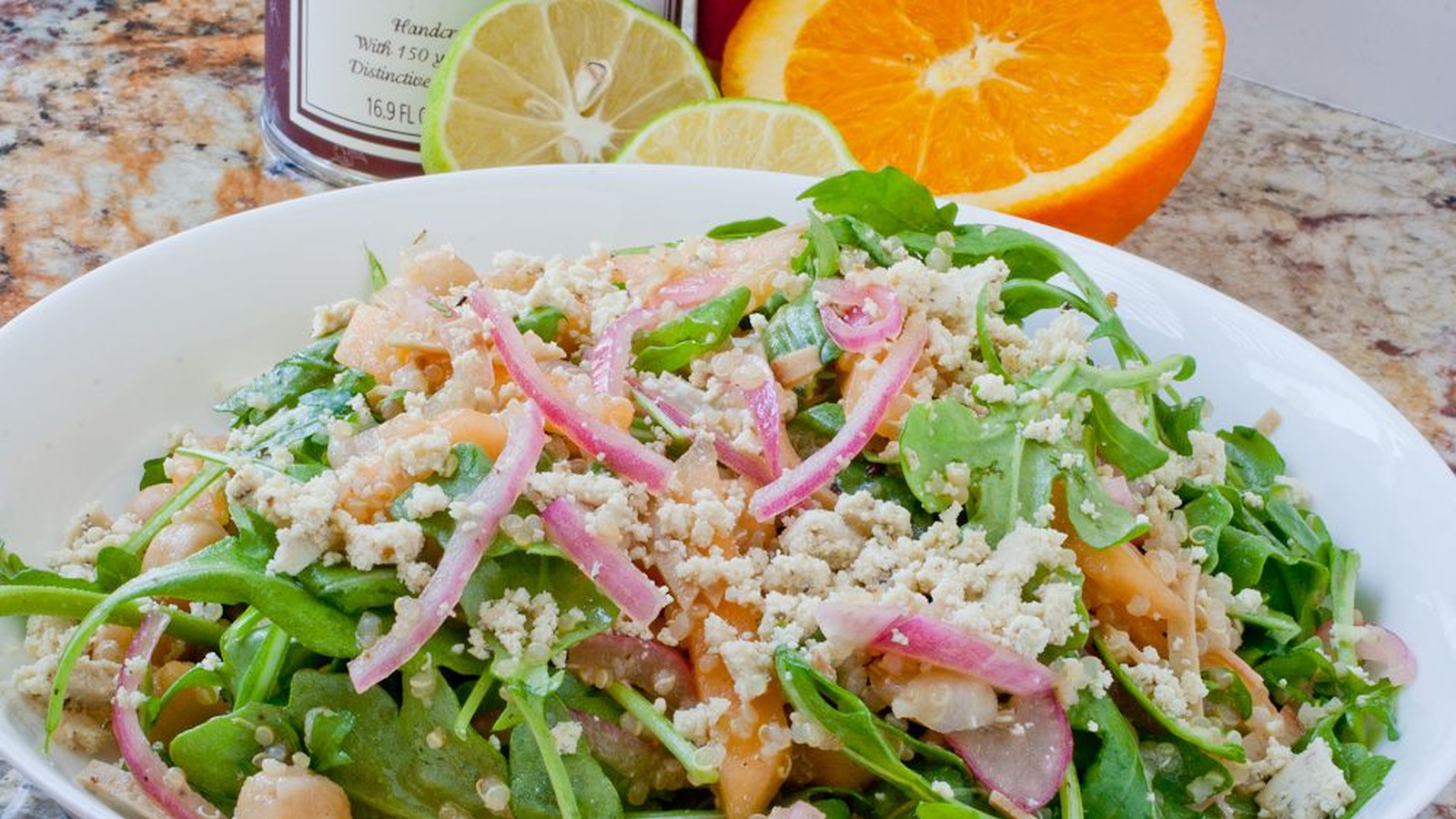Top 10 Vegetarian Sources Of Protein
One of the most common myths about the vegetarian diet is that after ditching meat it becomes nearly impossible to meet the suggested guidelines for protein intake.
The USDA recommends that women get about 46 grams of protein a day and men get about 56. Some people, like athletes and pregnant or breastfeeding women, may need more, according to WebMD.
But, thanks in part to initiatives like Meatless Monday, this year Americans are expected to eat 12 percent less meat and poultry than five years ago, USA Today reported.
While protein is essential to growth, building muscle, the immune system and heart and respiratory functions, MSNBC explains, meat-free protein has the benefit of generally being lower in calories and fat than the animal variety.
Whether you're a vegetarian or not, there are lots of tasty, meat-free sources of protein that also pack additional health benefits. Read through the list of the top 10 vegetarian sources of protein below and tell us your favorite in the comments.
1. Spirulina
Spirulina is 65 - 71 percent complete protein compared to beef, which is only 22 percent, and lentils, which are only 26 percent.
In addition to being protein-rich, spirulina is an excellent source of vital amino acids and minerals easily assimilated by your body. You would need to consume only two tablespoons of spirulina as a protein substitute for a meal.
2. Hemp
Protein Content: Seeds, 6 g per ounce; Milk, 2 g per cup
If you're allergic to soy, or just freaked out by its estrogenic activity, hemp products are your next best bet. Sold as a dairy alternative or as seeds, hemp is one of very few plant proteins that supply you with all the essential amino acids - acids your body can't produce on its own to build muscle and create more protein.
The fatty acids in hemp seeds and hemp milk also boost your immune system, and the crop itself is highly sustainable, growing as fast as 10 feet in 100 days and naturally requiring very few pesticides.
3. Chia Seeds
Protein Content: 4 g per ounce
Though the protein content isn't as high as some other vegetarian foods out there, chia seeds pack a huge nutritional punch. For starters, they're an incredible fiber resource with nearly half (11 g) of the amount you need every day in a single ounce.
That helps fill you up and eat fewer calories. They also contain 18 percent of your daily calcium requirement, more than triple that of milk, which helps your bones.
Chia seeds have no flavor, so you can add a tablespoon to any food you wish to without altering its flavor, and unlike flax, chia seeds don't need to be ground in order for your body to absorb all the nutrients.
4. Quinoa
Protein Content: 1 cup of cooked quinoa (185 g) contains 8.14 grams of protein
Quinoa is perhaps one of the most perfect non-animal sources of protein on the planet.
What makes quinoa (pronounce keen-wah) unique is that it is the only plant based source of complete protein. "Complete" means that it contains all 9 of the essential amino acids that are crucial to human function and health.
It is also a wonderful option for those that follow a gluten-free diet, since it is completely gluten free.
5. Tempeh
Protein Content: A firmer, chewier cousin of tofu, a half-cup serving of this soybean-based bite has 15 grams of protein
Fermented foods ought to be part of everyone’s diet, vegetarian or not. Tempeh is one that is chewy and delicious, even to die-hard burger fans.
It’s healthy and a much better bet than heavily processed tofu or “mock meats” that are brimming with poor-quality modified proteins, sodium, chemicals and starchy fillers.
In my opinion it doesn’t compare nutritionally or in taste to a juicy steak, but as vegetarian options go, it ain’t half bad.
6. Almonds and Almond Butter
When adding a handful of nuts to your salad for protein, go with almonds.
Protein Content: (between 6 and 8 grams, per handful)
Almond butter is less toxic and allergenic than peanut butter, although the protein amounts are similar by comparison.
Still, this is about quality protein, not necessarily the amount.
7. Veggies
Yep, good old greens will pack a protein punch.
One cup of cooked spinach has about 7 grams of protein.
The same serving of French beans has about 13 grams. Two cups of cooked kale? 5 grams. One cup of boiled peas? 9 grams.
8. Lentils And Beans
A cup of iron-rich lentils packs 18 grams of protein, almost as much as three ounces of steak. One cup of chickpeas contains 15 grams of protein, as does a cup of black or kidney beans.
9. Organic, Plain, Greek Yogurt (not vegan)
Protein Content: 15 to 20 g per 6-ounce serving
All dairy products are good sources of protein.
A glass of milk provides you with 8 g, but Greek yogurt is a protein powerhouse, with twice the protein and half the sugar and carbs of regular yogurt. In fact, Greek yogurt contains the same protein as a three-ounce serving of lean meat.
Top that with a handful of nuts and you could get half of your daily protein intake at breakfast.
10. Eggs (not vegan)
Protein Content: 6 g per egg
There's a reason the incredible, edible egg is such a popular breakfast choice.
The protein in eggs has the highest biological value, a measure of how well it supports your body's protein needs, of any food, including beef. And the yolks contain vitamin B12, deficiencies of which are common in vegetarian diets and can cause attention, mood, and thinking problems while raising blood homocysteine levels, a risk factor for heart disease, dementia, and Alzheimer's.
To get the healthiest eggs, find a local producer whose chicken flocks are small and feed off of grass, bugs, and organic grain; studies have shown that E. coli and salmonella contamination in eggs is directly related to the size of the flock.
What Are Your Favorite Veggie Sources Of Protein?
Do you have a passion for nutrition & natural healing?. Learn more about the Food Matters Nutrition Certification Program here.








